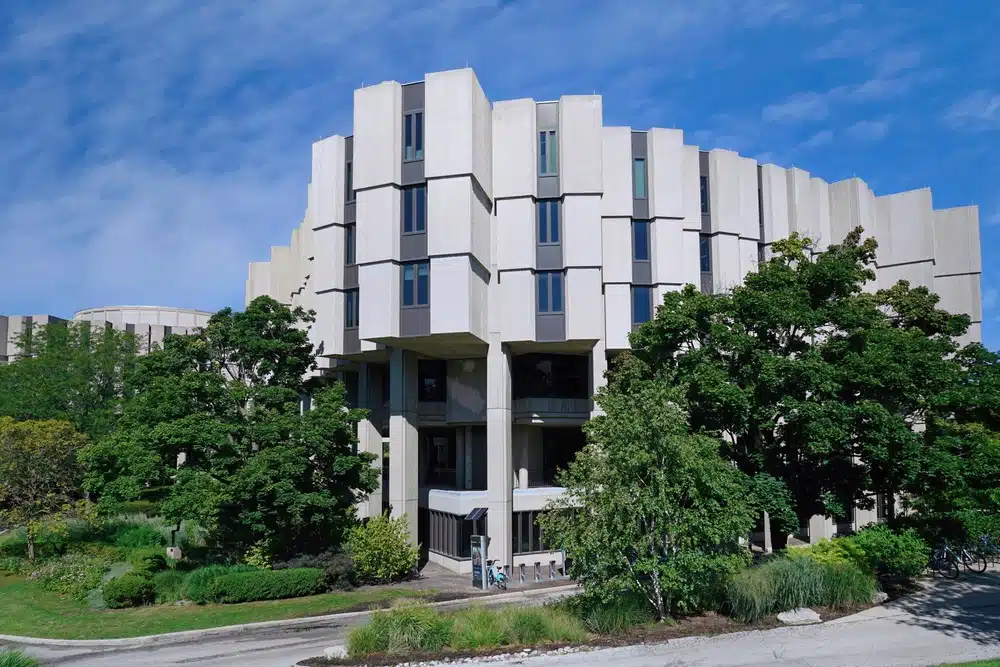How to Ace Your Northwestern University Secondaries
Discover the unique opportunities and challenges of the Northwestern University secondaries in this comprehensive guide. When it comes to medical education, Northwestern University has been instrumental in shaping some of the most promising minds in the field of medicine.
As with the primary application, secondaries are an important step in the admissions process. This article will walk you through the Northwestern University Medical School secondary application process, offering tips and strategies for answering common prompts.
Understanding the Northwestern University Medical School Secondary Application Process
After submitting the primary application, Northwestern will send an email inviting you to complete the secondary application. The secondary application consists of several prompts designed to help the admissions committee learn more about you as a candidate. These prompts may include questions related to your educational and professional background, your motivation for pursuing medicine, and your suitability for the Northwestern program.
Completing the secondary application is an important step in the admissions process, as it provides the admissions committee with a more comprehensive understanding of your qualifications and interests. Therefore, it is important to take the time to carefully consider your responses to each prompt and to showcase your strengths and unique qualities.
Importance of Secondaries in the Admissions Process
While the primary application serves as an introduction to your candidacy, the secondary application provides more detailed information about your qualifications and interests. Admission committees use secondaries to assess your fit for their program, as well as to gauge your communication skills and passion for medicine. In other words, secondaries are a critical part of the admissions process, and should be taken seriously.
It’s important to note that the secondary application is not just a formality, but rather an opportunity for you to differentiate yourself from other applicants and to demonstrate why you are a good fit for Northwestern’s program. Therefore, it’s important to approach each prompt thoughtfully and to provide specific examples that highlight your strengths and experiences.
Timeline for Submitting Secondaries
The deadline for submitting Northwestern University secondaries is usually within two weeks of receiving the invitation to apply. While this may seem like a short turnaround, it’s important to prioritize completing and submitting secondaries as soon as possible to avoid delays in the admissions process.
One strategy for staying on top of deadlines is to create a calendar or timeline that outlines each step of the application process, including when to submit secondaries, when to request letters of recommendation, and when to prepare for interviews. This can help you stay organized and ensure that you are meeting all of the necessary deadlines.
Tips for Staying Organized
Given the quick turnaround time, it’s important to stay organized throughout the secondary application process. Develop a system for keeping track of deadlines, requirements, and responses to individual prompts. Consider creating a spreadsheet or document that outlines each school’s specific requirements, deadlines, and submission instructions.
Another helpful tip is to reach out to current medical students or alumni of Northwestern’s program for advice and guidance on the application process. They can provide valuable insights into what admissions committees are looking for and how to best showcase your strengths and experiences.
Overall, the secondary application process can be challenging, but with careful planning and preparation, you can present yourself in the best possible light and increase your chances of being accepted into Northwestern’s medical program.
Tips for Answering Northwestern University Medical School Secondary Prompts
Now that you understand the importance of secondaries, let’s dive into some tips for answering Northwestern University Medical School prompts effectively.
Northwestern University Medical School is a highly competitive program, and the secondary prompts are designed to help the admissions committee identify the best candidates. Your responses to these prompts are crucial, as they provide insight into your motivations, experiences, and goals.
Reflecting on Your Experiences and Goals
When answering any of the prompts in your Northwestern University secondaries, it’s important to reflect on your experiences and goals. Think about what motivated you to pursue medicine, what sets you apart from other applicants, and how Northwestern’s program aligns with your goals. Use specific examples to illustrate your points, rather than generalizations.
For example, if you’re asked about your motivation for pursuing medicine, don’t just say that you want to help people. Instead, talk about a specific experience you had that inspired you to pursue medicine, and how that experience has shaped your goals and aspirations.
Demonstrating Your Fit with the Program
Throughout your responses to the prompts, you should strive to demonstrate your fit with Northwestern’s program. Highlight specific aspects of the program that appeal to you, and describe how Northwestern’s resources and values align with your own interests and goals.
For example, if you’re asked about why you want to attend Northwestern, don’t just say that it’s a great program. Instead, talk about a specific aspect of the program that you find particularly appealing, such as the emphasis on research or the focus on patient-centered care.
Addressing Diversity and Inclusion
Diversity and inclusion are important values at Northwestern University Medical School. One of the prompts you may encounter is related to this topic. When addressing diversity and inclusion, it’s important to avoid generic statements, and instead focus on specific examples of how you have contributed to or benefitted from diversity and inclusion in your personal or professional life.
For example, if you’re asked about how you have contributed to diversity and inclusion, don’t just say that you believe in these values. Instead, talk about a specific experience you had where you worked to promote diversity and inclusion, such as volunteering at a community center or participating in a cultural exchange program.
Discussing Challenges and Personal Growth
Another prompt you may encounter in your Northwestern University secondaries is related to overcoming challenges or personal growth. When addressing this prompt, be honest and vulnerable. Talk about how you’ve grown as a person through difficult experiences, and how those experiences have prepared you for a career in medicine.
For example, if you’re asked about a difficult experience you’ve had, don’t just talk about the experience itself. Instead, talk about how you overcame the challenge, what you learned from the experience, and how it has shaped your approach to medicine.
Strategies for Writing Effective Secondary Essays
Now that you have an idea of some of the prompts you may encounter, let’s discuss some strategies for writing effective secondary essays. Secondary essays are an essential component of the medical school application process. They provide an opportunity for you to showcase your personality, experiences, and qualifications beyond what is included in your primary application.
Be Concise and Clear
Admissions committees receive a high volume of applications every year, and they have a limited amount of time to review each one. Therefore, it’s essential to be concise and to the point in your secondary essays. Avoid using overly complex language or unnecessary details that might detract from your main message. Instead, focus on communicating your ideas clearly and effectively.
Use Specific Examples
One of the best ways to make your secondary essays more engaging and memorable is to use specific examples to illustrate your points. For instance, if you’re writing about a time when you overcame a significant challenge, provide details about the situation, your thought process, and the outcome. This will help the admissions committee to better understand your experiences and perspectives.
Show, Don’t Tell
When writing your secondary essays, it’s essential to avoid simply stating that you possess certain qualities or skills. Instead, show evidence of those qualities or skills through specific examples and anecdotes. For instance, if you’re writing about your leadership skills, provide an example of a time when you successfully led a team or organization. This will help the admissions committee to see how you have demonstrated those qualities in the past.
Proofread and Edit
Finally, before submitting your essays in your Northwestern University secondaries, be sure to proofread and edit them carefully. You want to ensure that your writing is free of grammatical errors and typos, and that your responses are structured in a logical and organized manner. You may also want to ask a friend or mentor to review your essays and provide feedback. This can help you to identify areas that need improvement and make your essays stronger overall.
By following these tips and strategies, you can maximize your chances of success in the Northwestern University Medical School secondary application process. Remember, your secondary essays are an opportunity to showcase your unique qualities and experiences, so take the time to craft thoughtful and compelling responses. Good luck!
How AdmissionSight can help you with college admissions
AdmissionSight is a college consulting firm that provides personalized assistance to students throughout the college admissions process. Here are some ways that AdmissionSight can help you:
Admissions strategy: AdmissionSight can help you develop a strategic plan for your college application process. Our professional consultants can assist with identifying schools that are a good fit for your academic, extracurricular, and personal goals and help you plan and prioritize your application strategy.
Application review: AdmissionSight can review your application and provide feedback on how to improve it. We can offer suggestions on how to make your application stand out and highlight your strengths and unique qualities.
Essay coaching: AdmissionSight can help you craft compelling essays that showcase your personality, goals, and achievements. We can guide you through the essay writing process and provide feedback on your drafts to help you refine your writing.
Interview preparation: AdmissionSight can provide interview coaching to help you feel confident and prepared for your college interviews. Our experts can offer tips on how to present yourself professionally and how to answer common interview questions.
Extracurricular planning: AdmissionSight can help you plan and develop your extracurricular activities to make them more impactful and meaningful. We can suggest activities that align with your interests and goals and provide guidance on how to demonstrate your leadership and initiative.
Overall, AdmissionSight can provide valuable guidance and support throughout the college admissions process to help you maximize your chances of getting accepted into the college of your choice.
With a high success rate of over 75%, we have built a strong network in the past decade. Book an initial consultation today, free of charge!







































